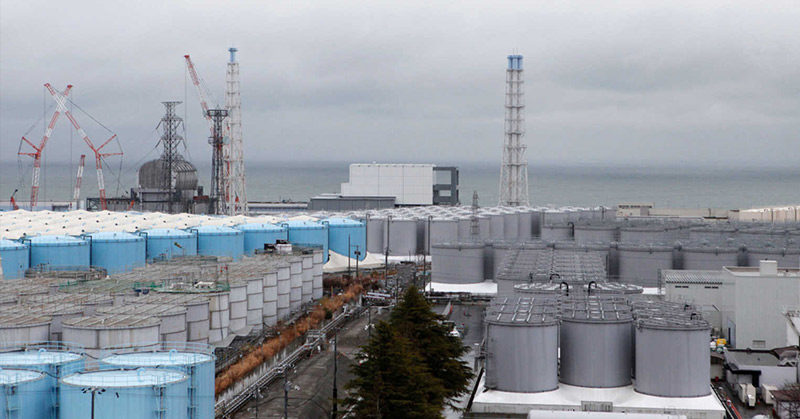It has been almost 10 years since the Fukushima nuclear disaster, and now the Japanese government must make a decision: What to do with Fukushima’s contaminated water? Officials are saying they will most likely be dumping it into the ocean. (1)
Fukushima’s Contaminated Water to be Dumped Into the Ocean
Since the earthquake and ensuing tsunami caused the release of tonnes of radioactive materials into the area, the government has been figuring out what to do with Fukushima’s contaminated water. (2)
Until now they have been storing it in giant vats which currently hold 1.2 million tonnes of water. Those tanks will be full by 2022, so the government is making the decision as to what to do from here. It appears as though the decision will be to dispose of that water into the sea. (2)
Japan’s industry minister Hiroshi Kajiyama said that a decision has not yet been made, however, they must make one quickly before time runs out. No other details were given. (1)
How the Disposal Will Work
The first step will be to filter Fukushima’s contaminated water and remove the radioactive isotopes. For this, Japan has a complex filtration system, however, there is one isotope, tritium, that this process cannot remove. (2)
Tritium is an isotope of hydrogen that is hard to separate. That being said, it is considered to be relatively harmless. Once diluted in the sea, it supposedly won’t do any harm to fish, humans, or the environment. (1)
When news of this decision first broke last year, earth and environmental scientist James Conca agreed. He said that dumping the water over a period of 10 years is actually the safest thing they can do.
“No harm has ever come to humans or the environment from tritium, no matter what the concentration or the dose. Putting this water into the ocean is, without doubt, the best way to get rid of it. Concentrating it and containerizing it actually causes more of a potential hazard to people and the environment. And is very very expensive with no benefit. ” (3)
It is common practice for nuclear plants around the world to release water with trace amounts of tritium into the sea. Naturally, many groups are still highly opposed to the idea. (1)
The Japanese Fishing Industry
Fishermen in the region are worried that releasing Fukushima’s contaminated water into the sea will cause further damage to the reputation of their already struggling fishing industry. After the 2011 nuclear disaster, South Korea imposed a ban on all fishing products from the Fukushima region. They have retained that ban since, and so the Fukushima fishing industry knows that this will further make consumers wary of their products. (1)
Fukushima’s Contaminated Water: The Bottom Line
The Japanese government will make the final decision by the end of this month as to what it will do with Fukushima’s contaminated water. (1) Until then, there are several groups including industry groups and environmental groups such as Greenpeace who continue to lobby against it.
Keep Reading: Chernobyl shocker as fungi that eats radiation found inside nuclear reactor

